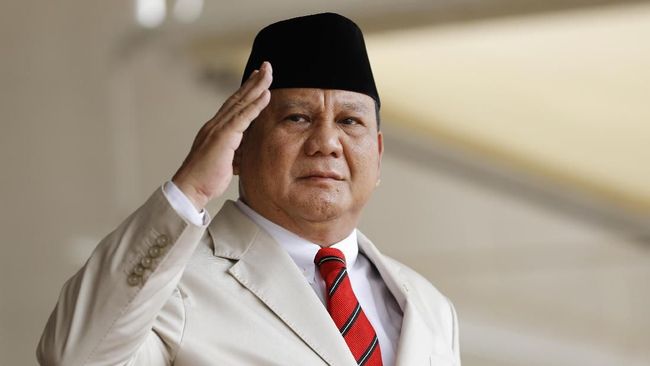Jakarta, CNN Indonesia –
Survey results the Center find the General Chairman of Gerindra who is currently Minister of Defense Prabowo Subianto as the strongest presidential candidate for the 2024 presidential election.
Prabowo’s electability level even beat other potential candidates, such as Central Java Governor Ganjar Pranowo and DKI Jakarta Governor Anies Baswedan.
The Populi Center found that Prabowo’s electability was at 18.3 percent. That figure is almost double the electability of Ganjar and Anies.
“Prabowo Subianto is the figure most expected by the public as a Presidential Candidate in 2024 with 18.3 percent,” said the Populi Center in a written statement, Monday (9/11).
Ganjar’s electability in the survey was at 9.9 percent. Meanwhile, Anies’ electability was at 9.5 percent.
In fourth place, there is the name of the preacher Abdul Somad who has an electability of 6.2 percent. Then there is West Java Governor Ridwan Kamil (5.8 percent), Deputy Chairperson of the Gerindra Board of Trustees Sandiaga Uno (4.8 percent), and Surabaya Mayor Tri Rismaharini (4.2 percent).
Other names included in the ranks were Democratic Party Chairman Agus Harimurti Yudhoyono (AHY), former TNI Commander Gatot Nurmantyo, East Java Governor Khofifah Indar Parawansa, and BUMN Minister Erick Thohir.
The survey was conducted on 21-30 October 2020 in 100 districts / cities which are spread proportionally in 34 provinces in Indonesia. A total of 1,000 respondents were involved through the multistage random sampling method. The survey uses a margin of error of 3.10 percent with a confidence level of 95 percent.
This is not the first time Prabowo has been lined up as the strongest candidate for the 2024 presidential election. At least five survey institutions have said that Prabowo has the highest electability as the 2024 presidential candidate.
Last February, Indo Barometer declared Prabowo the strongest presidential candidate with an electability of 22.5 percent. Then there is the Cyrus Network which says Prabowo’s electability is 18.7 percent in March 2020.
(dhf / kid)
– .

